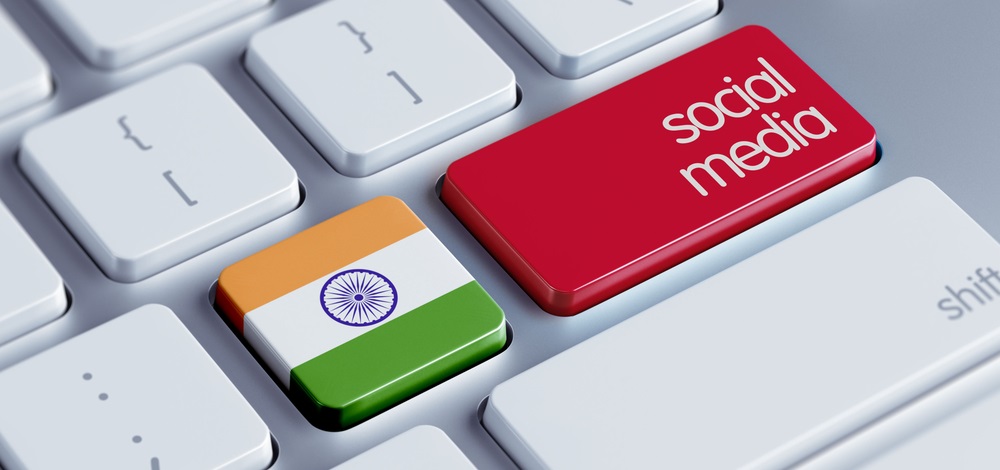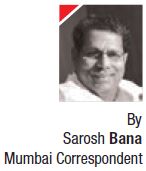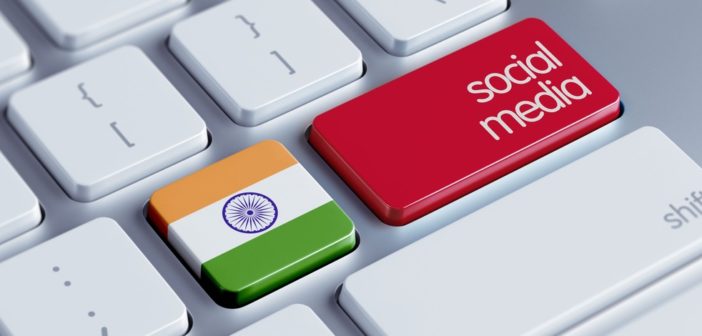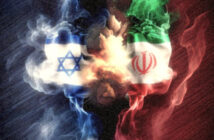
 With India’s mainstream media muzzled by the Narendra Modi government that brooks no criticism or dissidence, it was left to an American broadsheet like the Wall Street Journal (WSJ) to expose the collusion between the ruling Hindu nationalist Bharatiya Janata Party (BJP) and the American online social media and social networking behemoth, Facebook.
With India’s mainstream media muzzled by the Narendra Modi government that brooks no criticism or dissidence, it was left to an American broadsheet like the Wall Street Journal (WSJ) to expose the collusion between the ruling Hindu nationalist Bharatiya Janata Party (BJP) and the American online social media and social networking behemoth, Facebook.
WSJ, the US’s largest newspaper by print circulation, unravelled the searing discontent of Facebook India employees over the company’s brazen partisanship that raised questions over its role in the conduct of elections in the country and its laxity towards the bigoted and inflammatory posts of BJP leaders.
Despite the exposure that also revealed the communal bias and political affiliation of its public policy director in India, Ankhi Das, Facebook has opted to combatively exonerate itself of any misconduct in what undeniably is for it a public relations and political crisis. “We prohibit hate speech and content that incites violence and we enforce these policies globally without regard to anyone’s political position or party affiliation,” asserted a Facebook spokesperson. “While we know there is more to do, we’re making progress on enforcement and conduct regular audits of our process to ensure fairness and accuracy.”
Calling his firm “open, transparent and non-partisan”, Facebook India head Ajit Mohan denied any wrongdoing by his company, the denial published on Facebook India’s own page instead of its newsroom site, where such statements are usually published. He besides did not announce any internal investigation into the allegations.
WSJ cited unnamed Facebook India staff members as claiming that Das had intervened in internal content review processes to obstruct a ban on BJP leaders T. Raja Singh, Anantkumar Hegde and Kapil Mishra, who had posted communal rantings against the Muslim community. Raja Singh, according to the news report, also called for Rohingya Muslim refugees in the country to be shot and branded all Indian Muslims traitors. He also threatened to demolish mosques across the country.
The newspaper quoted Facebook India insiders as saying that Das had told them that “punishing violations by politicians from Mr. Modi’s party would damage the company’s business prospects in the country”.
Acting on a complaint by journalist Awesh Tiwari from the central Indian state of Chhattisgarh, the police there registered a case against Das for outraging religious feelings and inciting violence. Tiwari charged Das with pressuring her employees against taking down several hate speech posts prior to the general elections of 2019, which the BJP won with a brute majority. Das, in turn, filed a counter complaint with the New Delhi police that she was getting death threats and facing online harassment, also alleging that Tiwari had threatened her on Facebook.
Tiwari denied the allegations, and moreover named two other persons for colluding with Das to use Facebook “to publish and circulate content aimed at creating animosity between Hindu and Muslim communities”. The WSJ report quoted former and current Facebook employees as saying that Das had provided the BJP with favourable treatment on election-related issues. Tiwari also alleged that several of his posts critical of the government’s policies since February 2019 had been blocked by Facebook without explanation. “As a journalist for over 25 years, it is my duty to ask questions,” he maintained.
Facebook employees have also been concerned over how political content is being regulated in India, its biggest market, and the manner in which their senior executives are providing a platform to hate-mongers. The opposition Congress party was also said to have met Das over the issue and raised concerns “regarding these matters”. “This expose on Facebook comes as a shock, because one expects companies like Facebook to be professionally run and managed,” said Congress spokesperson Pawan Khera. “New facts are emerging, exposing the close ties of important officials of Facebook India with the BJP; democracy needs to be insulated from being sabotaged by such an unholy collusion.”
The Congress-headed Parliamentary Standing Committee on Information Technology also summoned Facebook representatives for a hearing, and sought a Joint Parliamentary Committee for probing the allegations. The opposition party also wrote to Facebook CEO Mark Zuckerberg, asking for his company to probe its India leadership and make that report public. Another opposition party, the Trinamool Congress, asked if the senior Facebook management condoned the actions of its India executives and accused the company of following different standards in different countries when it came to policing hate-speech.
India is the largest and fastest growing market for Facebook, providing the company a user base of around 350 million users. Facebook-owned WhatsApp also enjoys an enormous user base of about 400 million users, while sister platform Instagram has over 90 million users. These social media platforms are being widely viewed in India as not doing enough to crack down on fake news and hate speech, thereby polarising the online community. This controversy has been rife in the US as well, where Zuckerberg maintained that his company could not be “an arbiter of truth”, in response to criticism over the type of political content, which at one point also triggered a staff walk-out.
Though Facebook seldom invests in startups, it has been rather forthcoming in India, where it has invested in social-commerce firm Meesho and online learning platform Unacademy, even participating in its follow-up round, while picking up a 9.99 per cent equity stake worth $5.7 billion in Jio Platforms, India’s top telecom network. Just the other day, it also announced a grant of $4.3 million, in both cash and ad credits, for more than 3,000 small businesses across those Indian cities where it has its offices.
Unsurprisingly, Zuckerberg has a good equation with Indian Prime Minister Narendra Modi, under whose government such networking sites have flourished, especially as vital tools for the armies of BJP trolls who threaten dissidents with rape, assault and death. At a townhall event for Modi at his company’s Menlo Park headquarters five years ago, the Facebook chief had told the audience, primarily Indian expatriates, of his visit to India in 2008, at a time his company had hit a “tough patch”. He said his trip was at the suggestion of his mentor, Apple founder Steve Jobs, who had told him of his own sojourn at a temple there “for inspiration” and Zuckerberg had stayed for a month at the same temple.
As protesters outside the compound demonstrated against Modi’s brutal human rights record, the Prime Minister choked and burst into tears on stage when recounting the manual work his mother had done to bring up her children, an aspect that finds no mention in his biographies. He then fell upon Zuckerberg in a deep embrace, while wiping his tears.
Muslim employees of Facebook, from India, the US and the Middle East, were taken aback by the bigotry within their organisation. Das, who is at the centre of the controversy, apologised to them for a post she had shared on her personal profile in 2019 that had referred to India’s Muslims as a “degenerate community” to whom “nothing except purity and religion and implementation of Shariah matter”. In an open letter to Facebook, its Muslim employees also urged the company to designate Hindu supremacist organisations that mongered hate-speech and Islamophobia as “dangerous” and remove them from Facebook platforms.
Ajit Mohan, however, wrote an internal memo to the company’s India operations staff defending Das. “This article [of WSJ]does not reflect the person I know or the extraordinarily complex issues we face everyday that benefit from Ankhi and the Public Policy team’s expertise,” he wrote.






